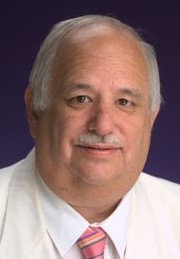Footsteps To Follow
Holy Week – Heart, Mind, & Soul
Holy Week – Heart, Mind, Soul
The average person makes about 35,000 decisions per day. These decisions range from where we will eat, how we will act, and what we will say to one another. People’s decisions can range from the small actions of everyday life to those big decisions that can transform their life and those around them. However, what initial instinct does a person use to make a decision? Some people make a decision based on a feeling within their heart; they know deep within themselves to make a determined choice. Some call this a gut response. Others come to a decision based on analyzing the situation with their mind: weighing out the options and creating a step-by-step plan. While many arrive at a decision through their soul: acknowledging that some aspect of the divine is at work through their prayer and meditation.
This week, many Christians will make the decision to intentionally enter into the celebration of Holy Week. In particular, they will join in the pinnacle celebrations of Holy Thursday, Good Friday, and Easter. Christians attend these celebrations for a variety of reasons: a love for the spiritual journey of Christ’s death and resurrection, a long-standing tradition within their own lives, or an inner invitation to take a closer look during these sacred days. No matter the reason which leads one to celebrate these intentional days, the celebration of Holy Week is a decision and response that comes from the heart, mind, and soul.
On the evening of Holy Thursday, the Christian community remembers how Jesus gathered his apostles in the upper room for the Passover meal. Their beloved teacher, the Son of God, humbled himself to wash the feet of those friends who would later hide in fear. It was at that meal where Jesus broke the bread and shared the cup of wine, saying: “this is my body…this is the cup of my blood…do this in memory of me” (Matthew 26:26-28, Mark 14:22-24, Luke 22:17-20 NAB). In this celebration, the Church acknowledges Jesus’ true presence in what appears to be broken bread and poured out wine. However, this is not the only transformation. The entire community is transformed into the Body of Christ here and now. Loving hearts are moved to become the Christ within their own families, community, and world. The Christian faithful are given that transformative decision to “wash the feet of others” by feeding the hungry, clothing the naked, visiting the sick and imprisoned, and serving others without terms or conditions.
The somber commemoration of Good Friday recalls the suffering, passion, and death of Jesus. It is almost impossible to understand the suffering of an innocent person. How could someone who proclaimed good news to the poor, healed the sick, and gave freedom to the oppressed be forced to suffer one of the most excruciating methods of punishment? Christ’s decision to willingly suffer in love of all creation may not be the decision any person might have made in weighing out the potential options. Yet, what appears to be an illogical decision of the mind can be the most logical sacrifice of love for another.
The joyous celebration of Easter begins on Saturday at sunset with the Easter Vigil. The community gathers in a pitch-black church during the darkness of night. However, what appears to be an uncomfortable darkness is illuminated by the bright light of the Easter Candle, with the words: “the Light of Christ.” Slowly the entire church building is brightened by the Living Church, and these celebrants hold their own lighted candles. It is Christ’s light of Resurrection that guides the soul in their response to be the light of hope in our dark world.
The decision to intentionally enter into Holy Week may be rooted in a variety of reasons. No matter how people find themselves in a local church this week – whether from a response of the heart, an action from the mind, or a movement within the soul – any response to journey with Christ through his passion, death, and resurrection comes from the love of God. When Christ was asked for the greatest commandment, he responded from the Old Testament scriptures, saying: “‘you shall love the Lord your God with all your heart, with all your mind, with all your soul’” (Mark 12:30). This is the Paschal Mystery that we celebrate during Holy Week. This is the invitation to love God with our heart, mind, and soul as the Christian community continues to show Christ’s love in service, sacrifice, and the light of hope.
-Andrew McCarroll, Seminarian at St. Boniface and St. Lawrence Parishes
Praying
Praying
When I was about fourteen years old, I gave into peer pressure and began smoking with my friends. I did not have a personal relationship with Jesus at that time. I did have parents who would never condone my smoking. This meant going to great lengths to hide my bad habit.
My friends and I got away with our little secret for many years. After all, the warning on the pack simply stated that cigarettes may be hazardous to your health, not that they definitely were. It wasn’t the smoking that worried me; it was getting caught.
The years went by, and I continued to smoke. Finally, I was at an age when my parents allowed me to smoke. But things were beginning to change. The warnings on the packs were definite. Smoking was dangerous to your health and could cause results like heart disease and cancer.
Both my parents were smokers who switched to a milder brand. However, it was too late. At age forty-four, my dad died of a massive heart attack, and some years later, at age sixty, Mom succumbed to lung cancer. I was crushed.
In spite of this, I kept on smoking. Now, though, I knew Jesus as my Lord and Saviour. I was a wreck but could not quit smoking. I cried and I prayed, and I cried and I prayed some more. I counseled with my pastor and asked my whole church family to pray.
Little children from my Sunday school class would approach me to let me know that they were praying for me. How pathetic I felt! Why wasn’t God answering my prayer? Why wasn’t He answering the prayers of these children who loved their teacher?
I knew people would say that God answers every prayer, but sometimes the answer is “no,” and sometimes it is just “wait.” I believed that, but I now was really becoming discouraged. Why would God say “no” when His Word says, “What? Know ye not that your body is the temple of the Holy Ghost which is in you, which ye have of God, and ye are not your own?” (1 Chorinthians 6:19 KJV).
There was only one response that I could make, and that was to go back to the Lord. I was alone in the house one day when the Lord spoke to my heart. He told me that prayer had to be honest. I knew immediately what that meant. Hurriedly, I went up the steps.
I fell at the side of my bed, and kneeling before God, I could not have been more honest. The fact was that I had become addicted to smoking, not just physically but psychologically. Therefore, I enjoyed smoking, and I didn’t want to quit. I admitted this to my precious Lord who already knew, but wanted to hear it from me. I had to ask Him to take away my desire to smoke, my dependance on cigarettes, and the control I was giving to them. I prayed that my desire would be to please Him, surrender all control, and depend wholly on God. What a burden was lifted!
Prayer is always answered when we pray with a right heart, an honest and submissive heart. It is answered when we pray to our Father the way Jesus Himself prayed: honestly, wanting the Father’s will, and in complete obedience, obedience unto the cross.
If we do not pray in His will, we are not truly praying. Jesus said, “For I came down from heaven, not to do mine own will, but the will of him that sent me” (John 6:38 KJV). God’s will is always the truth to pray for.
-Peggy Thompson, Junior Church Teacher, Victory Baptist Church, Bloomsburg
Hope Over Trouble
Hope In The Midst Of Trouble
During the last week of His earthly life, Christ was asked for an explanation of end times. His disciples were questioning what to look for, and as ever, He was completely honest for both their benefit and ours. As Billy Graham once stated, “The Bible tells us that the state of the world will grow darker as we near the end of the age.” In Luke 21:5-38 we read how Christ answered His disciples. Verses ten through nineteen are deeply personal, with Christ using the word “you” twelve times. He warned the disciples about false messiahs, wars, international conflicts, famines, pestilences, persecutions, betrayal, hatred of believers, and the Temple’s and Jerusalem’s destruction. Christ warned the disciples specifically so that the challenging, uncertain times would not overtake them unawares.
Christ then moves into a more general warning for believers after the disciples are gone. The challenging litany of problems continues from verses 25-28. “There will be signs in the sun, moon, and stars,” and on earth, along with the rolling, “roaring” seas. All of heaven will be “shaken” (vs. 25, 26 NIV). Along with the physical signs, humankind will be overcome with anxiety, fear, and perplexity. This will be a dreadful time of emotional, physical, and spiritual turmoil.
This passage is as up-to-date as this newspaper and today’s headlines! Anxiety and fear are worldwide mental health crises. Jesus did not just share the bad news, however. He gave the disciples and all believers through the ages hopeful encouragement in how to deal with these crises. In this passage, we read that Jesus said to keep settled minds. God will give His words when Christians testify about Him. Understanding God’s wisdom will help us remain victorious. Jesus said, in verse 33, “Heaven and earth will pass away, but my words will not pass away.” Realize believers’ souls will both endure and persevere. Stay awake; pray. Straighten up; redemption and God’s Kingdom are close! Watch; don’t be drawn away through drunkenness and cares of this life. Pray for strength to stand unashamed before Jesus. Jesus promises, “I told you these things so that you can have peace in me. In this world you will have trouble, but be brave! I have defeated the world” (John 16:33 NCV).
The ultimate conclusion to all of this end-time drama is the reappearance of Jesus Himself. Believers will experience joy beyond description as they will never again be separated from the Savior. As Bill Gaither sings in the song, “Because He lives, I can face tomorrow” (Gaither, Gaither, Damico).
Lent is here; read or listen to the Gospels, and see the life map that God lovingly provided for us.
-Rebecca Logan, Retired UPMC Chaplain, Member Lycoming Valley Baptist Church
God’s Wisdom and Human Foolishness
God’s Wisdom And Human Foolishness
The Epistle Lesson tomorrow deals with the “foolishness” of the cross.
After Jesus lived the life he lived, healing the sick, raising the dead, and fulfilling prophecy, he was tried and executed. He was executed on a cross and then buried. The High Priests and others who wanted him dead thought they had succeeded in their mission. But much to their surprise, Jesus was raised from the dead. Therefore, instead of quelling his ministry, they fueled it.
When they realized that the Apostles picked up the message and carried it to the people, the High Priests again tried to silence it, but fueled it even more. In Acts, we read that the Apostles were arrested and ordered not to preach about Jesus Christ. However, when the Apostles were released from prison, they continued to teach. The High Priests called them back to court and said, “‘We gave you strict orders not to teach in this name…Yet you have filled Jerusalem with your teaching and are determined to make us guilty of this man’s blood.’ Peter and the other apostles replied: ‘We must obey God rather than human beings! The God of our ancestors raised Jesus from the dead—whom you killed by hanging him on a cross’” (Act 5:28-30 NRSV).
Just prior to their arrest, Ananias and Sapphira were both killed for lying to the Holy Spirit. You would think that would shut down the movement, but it was not the case. We are told that the people were afraid. “Nevertheless, more and more men and women believed in the Lord and were added to their number” (Acts 5:14).
Today we find that the cross has become the primary reminder of what Jesus did for us. He went to the cross, a tool of execution, yet through his death many have received life that is everlasting. The war between God and humans regarding sin was finally over. We remember his grace, the forgiving of our sins, and we have the hope of resurrection because of what Jesus did for us. The cross becomes a symbol of our salvation that we wear without embarrassment.
The rest of the passage reminds us that the wisdom of humans is foolishness compared to God’s wisdom. Paul goes on to show us the reasons. All of what he says is based on the power of the cross.
Paul then, referring to Isaiah 29:14, states “For it is written, ‘I will destroy the wisdom of the wise, and the discernment of the discerning I will thwart.’ For since, in the wisdom of God, the world did not know God through wisdom, God decided, through the foolishness of our proclamation, to save those who believe” (1 Corinthians 1:19). In this case, he is speaking of the Apostles and himself.
Paul continues, “Jews demand signs” (v. 22). Matthew records, “Then some of the scribes and Pharisees asked Jesus, ‘Teacher, we want to see a sign from you…no sign will be given…except the sign of the prophet Jonah, because just as Jonah was in the stomach of the sea creature for three days and three nights, so the Son of Man will be in the heart of the earth for three days and three nights’” (Matthew 12:38-42).
1 Corinthians 1:22 states, “Greeks desired wisdom,” power, or the cross. Greeks worshiped wisdom, which we know through the philosophers. They loved to rationalize everything. Yet their wisdom did not hold a candle to God’s wisdom. There are many things we may never understand in this world. Some things cannot be rationalized or explained but need to be believed by faith. How strong is your faith?
-Rev. James Behrens, Retired Pastor from Susquehanna Conference United Methodist Church
Holy Families
Holy Families
February is the month of the Holy Family: Jesus, Mary, and Joseph. This tradition has its beginnings in the 17th century. So, I thought we could look at family love and what a holy family can look like in today’s world.
Of course, we can look to the Holy Family as the epitome of virtue. What are some of the practices they embraced that we could use today to construct healthy, happy, and holy lives? The first way that comes to mind is prayer. We can be certain that Joseph, Mary, and Jesus, as a devout Jewish family, prayed the Psalms (Tephillah) three times daily. Joseph, and Jesus upon adulthood, would be obligated to pray the Shema, a profession of faith, twice daily. In our busy world, we can easily forget or overlook the importance of praying as a family. But praying doesn’t have to be an involved, burdensome task. Praying before meals, a quick blessing before leaving the house in the morning, speaking with loved ones when on a car ride, and the classic bedtime prayers can all be simple ways to add family prayer into our lives. As Fr. Patrick Peyton (quoting Al Scalpone) said, “A family that prays together stays together.”
Consider attending Sunday service as a family. God did not create the Sabbath because He needed to rest or to worship Himself. It is a sacred gift for us because He knows how much we need it. It fulfills one of the Ten Commandments. How blessed is a family who worships the Lord together!
A second way the Holy Family fostered familial love was in working together. We know that Jesus was a carpenter like his father. They must have worked many days and hours side by side, St. Joseph teaching Jesus. Can you imagine the hours they spent together with tools in hand? I am sure there were times of silence. But they certainly also used the time to talk about family life, work, relationships, faith, and even laughed together.
Speaking of laughing together, the Holy Family also had times of play and leisure. As humans, we need to play for connection, creativity, and rejuvenation. Today, with so many devices and activities, we can be in the same “location.” But are we connecting? Playing together as a family creates bonds that last a lifetime. There are many options: puzzles, board games, hikes, family vacations, a movie night, or going to the park. Be creative! The opportunities and ideas are only limited by your imagination or ability to search ideas on the internet.
My final suggestion is to show affection for each other. I know this can be uncomfortable for some. Sandi Schwartz wrote “How A Parent’s Affection Shapes A Child’s Happiness.” She states: “In 2015, a study out of the University of Notre Dame showed that children who receive affection from their parents were happier as adults. More than 600 adults were surveyed about how they were raised, including how much physical affection they had. The adults who reported receiving more affection in childhood displayed less depression and anxiety and were more compassionate overall. Those who reported less affection struggled with mental health, tended to be more upset in social situations, and were less able to relate to other people’s perspectives” (spsp.org).
Now, let’s go be holy families.
-Ms. Tiffany Haller, Director of Faith Formation, St. Ann Church, Williamsport
The Gear Effect – FORE
The Gear Effect
I am a golfer. I enjoy the thrill of a “straight down the middle” drive, a good 7 wood second shot off the turf, a crisp chip onto the green followed by a steady putt into the cup.
Golf is an interesting game. It can be rewarding, frustrating, invigorating, generate defeat and euphoric victory – all in one hole.
I tell you this because it is a sport that involves skill and correct movements, from the tee box to the putting green.
I used to just pound at the ball, sometimes hitting it well, and more often than not, topping it or duffing it right or left. Then one Christmas I was gifted with a set of lessons. My game began to solidify as I was shown the correct grip, the proper path of the club, both in the backswing and the forward strike of the ball, and the accepted technique when I putt. My teacher was Rick Musselman, who writes a weekly golf advice column for this newspaper. A few weeks ago, the topic of the print lesson was the “gear effect,” which is an inverse law.
In golf, you must hit down on the ball to make it go up. It doesn’t sound like it makes sense, but it is true. The angle of the club face is the key; it puts loft on the ball as you strike down on the backside.
In keeping with this practice, if you slice the ball (it goes left as you hit it), you need to correct your grip and stance. Do not try to hit to the right to compensate.
This does not work in baseball or tennis; if you hit down, the ball goes down.
In perspective for the non-athlete, when your car goes into a skid, you should steer in the direction of the skid. Do what is opposite of your logical thinking.
Now for the tie-in to Christianity: do the opposite of human nature.
Jesus said, to defeat the human urges, do what we consider the opposite.
In the lessons from Matthew 5, which we call The Beatitudes, He states that “The meek…shall inherit the earth” (v. 5 ESV). In our human thinking, the most powerful or richest should inherit and rule the earth, controlling via strength, not meekness.
One Old Testament law stated “an eye for an eye,” but Jesus stressed that we are to take an opposite, passive action and “Love your enemies, do good to those who hate you, bless those who curse you, pray for those who mistreat you. Whoever hits you on the cheek, offer the other also…” (Luke 6:27-29 NASB).
We are not just to tolerate our enemies. Now that is clearly opposite to how we think. We wonder where He comes up with these ideas. Doesn’t He know what our enemies have done to us? They cheat, take away promotions and jobs, collaborate with those who mean us harm, and cause us physical, emotional, and spiritual pain. Shouldn’t we plan revenge; after all, you know what they say about paybacks. That is not how God works. He so loved us that He sent His Son to die for us. He did this “while we were yet sinners” (Romans 5:8 KJV). He did the opposite of getting back at us.
Jesus calls us to do the unreasonable (bless our enemies), not the reasonable (ignore our enemies). Jesus calls us to do the improbable (do good to our enemies), not the probable (do nothing for them).
It is the “gear law.” Do the opposite correctly, and the proper result will occur.
In life, love everyone – especially your enemies, and the world will spin a little better. In golf, hit down to make the ball go up. Fore.
-Richard DeMarte, Second Vice President, United Churches of Lycoming County
Be Mine
God Invites: “Be Mine”
Did you resolve to read the entire Bible in 2024? Did you give up yet?
Christianity.com offers five reading plans, including the well-known and most difficult: start at Genesis, chapter one and read all the way through to Revelation, chapter twenty-two. The problem with that plan is you hit the brick wall of Leviticus on February 1. What is with Leviticus, anyway?
The third book of the Bible starts with detailed, complicated instructions on how to kill select animals and burn them as offerings to God. When I developed my Old Testament Tour course for high school students, I created an outline for each Bible book I covered. The heading for Leviticus chapters 1 – 7 was “The 5 W’s of the 5 Offerings,” with the sentence summary: “God tells Moses who, what, when, where, why, and how for the burnt, grain, fellowship, sin, and guilt offerings.”
Many people abandon their Bible reading plan here, but I couldn’t let my students abandon Leviticus. In addition to memorizing my outlines, students were also required to memorize a verse of Scripture, sometimes more, for each book. At that time, the school required memorization from the King James Version of the Bible. When I found the following verse, it opened up the meaning of Leviticus to me: “And ye shall be holy unto me: for I the LORD am holy, and have severed you from other people, that ye should BE MINE” (Levitcus 20:26 KJV, emphasis mine).
Be mine? Like on the candy conversation hearts? Leviticus was God’s valentine to his chosen people, Israel! All of the offerings, dietary regulations, and other laws served the purpose of separating Israel from the idol-worshiping cultures around them, to be in a relationship with the one true God alone. The New International Version translates the same verse: “You are to be holy to me because I, the LORD, am holy, and I have set you apart from the nations to BE MY OWN” (emphasis mine). It reminds me of a traditional wedding vow, which includes “forsaking all others, I will be yours alone as long as we both shall live” (marthastewart.com…traditional-wedding-vows).
Providentially, my classes were just coming to Leviticus in February, and stores were overflowing with Valentine’s Day items. I bought conversation hearts and rewarded students with a handful each after we played learning games. If your handful included a “be mine,” you got an extra point on your bonus point card. I collected and displayed items that read “be mine” such as a heart shaped pillow, a plush puppy holding a heart, a palm-sized refrigerator magnet. One student baked cookies for the class, cookies decorated almost exactly like the magnet. All that sugar got us through Leviticus, but we didn’t proceed directly to the next book, Numbers.
Instead, we studied passages in the New Testament book of Hebrews, which explain Leviticus. All the offerings, the priesthood, and even the layout of the Tabernacle (precursor to the Temple) pointed to Jesus, both the perfect offering and the perfect priest. One passage in chapter ten summarizes the many points the author has already made: “Day after day every [Levitical] priest stands and performs his religious duties; again and again he offers the same sacrifices, which can never take away sins. But when this priest [Jesus] had offered for all time one sacrifice for sins [his death on the cross], he sat down at the right hand of God, and since that time he waits for his enemies to be made his footstool. For by one sacrifice he has made perfect forever those who are being made holy” (Hebrews 10:11-14 NIV).
That excites me not just because I am a Bible nerd, but also because I realize Jesus provided everything necessary for me to be in a relationship with the one true God, to be adopted as his child. Not only that, but through Jesus, God extended his valentine beyond Israel to the whole world. Because of Jesus, I can exclaim with the epistle writer, “See what great love the Father has lavished on us, that we should be called children of God! And that is what we are!” (1 John 3:1a NIV).
Don’t bail out on your Bible reading adventure in Leviticus. Listen for God’s whisper: “Be mine.”
-Roberta Tucker Brosius, First Baptist Church, Milton
Traveling A Difficult Road
Traveling A Difficult Road
The Old Testament Lectionary reading for this week comes from the writings of the great prophet Isaiah. The passage from Isaiah 40:21a opens with a sense of admonition: “Do you not know? Have you not heard? Has it not been told you from the beginning?” (NIV). In other words, shame on you if you do not know who and what God is and does. After all, you have your experiences, you have your observations, you have your tradition handed down to you. That should be enough. Open your eyes, open your ears, open your minds to your God.
For, there is no equal to your God. His throne is above “the circle of the earth” (Isaiah 40:22). As we stare into the night sky, His omnipotence is clearly visible. Not only is God the Creator, God calls the stars by name (v. 26). God reveals Himself, and we need to draw the implications. The whole universe is but God’s tent, and our Creator will not abandon His Creation, as the prophet reminds us of who God truly is (v. 22).
That reminder should bring us the comfort and reassurance that all too often we desperately need in this world. With the world’s myriad of challenges, problems, and difficulties, we all can have a relationship with an all-knowing and all-powerful God.
As we come to the end of the chapter, it goes on to reassure the readers. Matthew Henry remarks that “a reproof is given to the people of God for their fears and despondencies and then in a few words, silences the fears. Through patience and comfort of this scripture, one may have hope.” Like the Israelites, yes, you have problems, and yes, you have challenges, but…
Isaiah reassures us as he did the Israelites: “He gives strength to the weary” (v. 29a). Then, the chapter ends with those familiar words that are almost iconic. (I looked for a different word than iconic, but there are none. Iconic sums these words up.) “Even youths grow tired and weary, and young men stumble and fall; but those who hope in the Lord will renew their strength. They will soar on wings like eagles; they will run and not grow weary, they will walk and not be faint” (vs. 30-31). With the problems of the past in their minds, the Israelites can have assurance. The same is true for us. Sometimes the problems threaten to overwhelm us. However, as Isaiah reassured the Israelites, with the same words, he reassures us.
And as Isaiah spoke to the Israelites, in the Gospel lesson we see Christ speaking. After going off to pray in a solitary place while it was still dark, the disciples later looked for him. Upon telling Christ that everyone was looking for Him, Christ replied, “Let us go somewhere else…so I can preach there also. That is why I have come” (Mark 1:35-38).
As Christians, we know and experience why Christ came. He extended the message of God’s love and presence in an incredible way. He went to the cross to die for us so that we can have a relationship with God and experience God’s forgiveness. In that relationship, as we travel the sometimes-difficult road of life, we are reminded that God travels with us. May our experiences, observations, and traditions handed down assure us that God indeed walks with us each step of our journey.
-Max Furman, Pastor of Antes Fort-Oriole Methodist Churches, 1409 Gap Road, Allenwood, PA 17810
Church Shopping Online – Footsteps – Jan 27, 2024
Church Shopping Now Online
You don’t have to go to church anymore. You don’t have to drag the kids out of bed with threats of dismembering them if they don’t get up and get dressed for church. You do not have to fight for your time in the bathroom to do your hair. It doesn’t even matter what you wear! No more dads in the driveway, tooting the horn and trying to get everyone to church on time. No, because you don’t have to go to church anymore.
You don’t have to worry about feeling awkward around unfamiliar faces or shaking hands or giving hugs during the miserable time in the service they call “passing the peace.” You don’t have to remember names and faces or figure out who belongs to whom. You do not have to fiddle to find your wallet when the offering is passed or worry about whether you should sit or stand during the liturgy. No more signing up to help in the nursery or help with potluck dinners, yard sales, or outreach. No, because you don’t have to go to church anymore; you can just watch it online!
It seems like every church these days has found a way to make the service available online. Virtual church helps to include the homebound, who would otherwise be excluded. It is also a great way to shop for a new church. You eliminate the awkward, “Where do I sit” and “I hope I do not look like a visitor” (which you are) or waiting for someone to genuinely greet you, which they rarely do. You can observe worship style and sermon and determine if the church might be a good fit for you. It is a safe, noncommittal way to look for a new church family.
WAIT A MINUTE!
The digital church was never meant to replace the in-person church. Watching church online is a passive experience. Who sings along with the hymns while watching the service on your phone? Who really bows his head and closes her eyes and joins in the prayers? Is this authentic worship?
The word for “church” in the New Testament means “assembly.” If we aren’t together with other people, we are not being “the church.” Fellowship happens when we gather. When we don’t go to church, we miss out on the Eleanors who remember your kids’ birthday every year and celebrate their victories and pray with you through their trials. You miss Larry’s jokes that have a way of making everyone smile. You don’t get to see the mentally-challenged adult light up when the pastor mentions her name. Or you don’t get to see the excited children running from children’s church, showing off their craft project to all who will stop to admire it. When you don’t go to church, you don’t see the young woman in tears because her daughter is on drugs, and you don’t see the group of women around her praying for her. When you don’t go to church, you don’t get to experience the movement of the Holy Spirit, which brings deeper commitment, tears of repentance, and joyous celebration of God with us.
Online church is an option that too often becomes a habit. According to the Pew Research Center, twenty percent of former church goers are choosing the virtual church. When we opt out of in-person church, we mock the beauty of community that God intends for us to have. When you are not seen, you are not missed. When you are not spoken to, you are not held accountable. When no one asks how you are doing, you will not be able to tell them.
Fellowship happens when we gather. Vulnerability happens when we assemble, and the Holy Spirit moves when we pray together.
So go to church!
-Rev. David Mansfield, retired Disciples of Christ pastor
Footsteps Jan 21, 2024
Looking Out For Whose Interest?
Tax season is coming, and many of us are organizing our financial records, getting ready to file our federal taxes. We await documentation of what was paid to us last year.
I am old enough to remember the television shows that portrayed characters having a bulging shoebox containing every receipt they received during the year. As they opened the lid, out sprung hundreds of cash register receipts and handwritten bills. Then began their task of sorting the pieces of paper into useful categories, adding them up, and using them where applicable. How different it is in our computerized world! Any way of keeping your accounts generates memories, reminding us where our hearts have been during the past year.
I am glad it is not just me who I have been caring for this year as I have paid all my bills. Should that be so, I am afraid I am more expensive than I am worth! However, there are three of us in my family unit, including my spouse, Bob, and our dog, Truffles. All of us are getting older and accumulating extra expenses. However, looking at where we spent our money this past year, I see that our hearts have not just been confined to our family and what makes us happy.
I see that donations of treasure, and often of time and talent, have also been shared throughout the year with many charitable entities. The charities include neighborhood food pantries and programs, libraries, homeless shelters, programs for those who are abused or in recovery, cancer treatment centers, hospice units, hospitals, nursing homes, support groups of all different kinds, and places to help people transition into self-sufficiency. You do not have to go far to find people to help in our or any community. Not only do people need care, but pets and animals need care, as does our environment.
This week is part of the Week of Prayer for Christian Unity, a time Christians are encouraged to set aside to pray for the gift of visible unity. This year, the theme reminds us that Jesus taught that all human beings are neighbors and that, “You are to love the Lord your God …and your neighbor as yourself” (Luke 10:27 NRSVUE).
It is early in a brand-new year. This is a perfect time to look around and take stock. When one person’s needs are overlooked or left unattended, all of us suffer. Each of us has resources: time, talent, treasure! Together we can make a difference.
Our daily jobs constantly contribute to the well being of everyone. Many were surprised, in the early days of the pandemic, to see just who was on the list of essential workers.
Sometimes it takes a whole village to solve a problem. Sometimes it takes a whole county, a whole country, even a whole world to make sure people’s needs are taken care of. However, if we all wait for the person “over there” to do something, nothing is going to happen. It has to start with you and me reaching out to help the person right in front of us, the person right beside us, or the person right behind us.
Listen for those crying out in pain and reach out. No one should be forsaken or forgotten.
Listen and rejoice as we learn to better live and work together, loving God and loving all our neighbors near and far. We will see hope unfold in our world.
-Rev. Gwen Bernstine serves as pastor of Lycoming Presbyterian Church, Newberry








